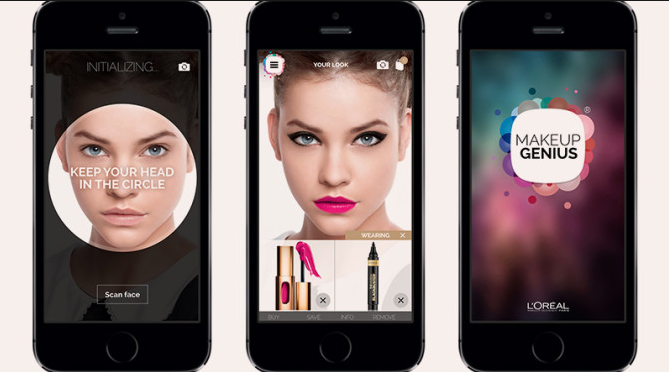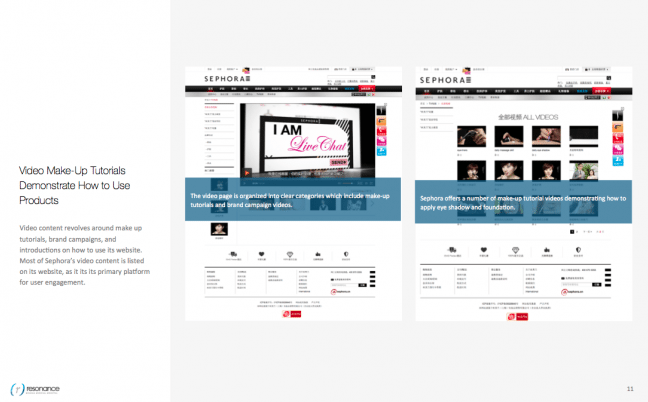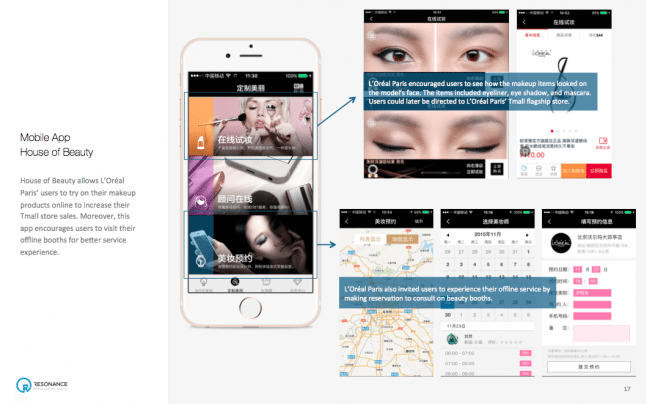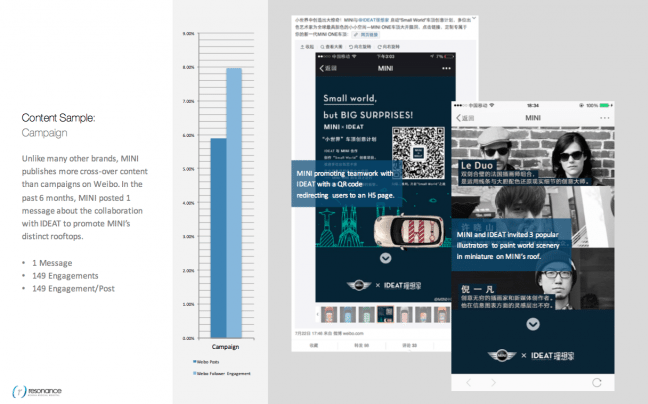L’Oréal proves the brands’ capacity to influence Chinese consumer habits using make-up apps such as Makeup Genius and House of Beauty.
Mobile applications such as Makeup Genius present an innovative and entertaining way to show how to handle new products
Makeup Genius gives the opportunity to its users to apply makeup on their own digital image, in order to try new L’Oréal cosmetics.
First, this application allows Chinese customers to exercise their creativity, but it also shows them how to handle a new cosmetic product they might not know yet.
Asmita Dubey, Chief Marketing Officer for L’Oréal China, commented about mobile apps’ power and virtual trials to introduce brand new products to a (sometimes) shy Chinese audience :
« Chinese girls might be shy to apply make-up if they are in the shop or if they are hanging out with their friends. For example, they might not try dark lipstick or dark eye shadow even if they would want to. Moreover, there also exists no culture of makeup from mother to daughter in China. Therefore, a Chinese girl, considering her background, can use these apps to try out, without any fear, any new look she would like ».

©beautyandthedirt.com
Mainland Chinese girls are still in process of expanding their user preferences
Due to several years of economic isolation, Mainland Chinese girls are still willing to develop their customer preferences. Some of them still need to be shown how to use what appears like basic products for western girls.
During the Cultural Revolution, makeup was seen as a really luxurious item. Nowadays, it still remains a « new » product that Chinese consumers are willing to learn using. They are developing their tastes in terms of choice and preferences.
Sephora is introducing new items through video makeup tutorials
Sephora, another famous cosmetic brand, uses the same mentality as L’Oréal to engage Chinese consumers.
In China, their website has several makeup video tutorials that users can watch, in order to learn how to handle products like blush, eyeshadow to their faces.
Read more about Sephora and its new partner in crime..
House of beauty app is used by L’Oréal to attract customers to their offline Store
Besides Makeup Genius, L’Oréal uses another mobile application – House of Beauty – to show beauty transformations before and after makeup, but also to attract consumers to their offline beauty counter, heading them to an online booking system for makeup tutorials in-person.
The House of Beauty app fills the gap that remains between online to offline engagement, supporting Chinese digital users to turn into customers in real life, or at least, to come into their store for a real makeup demonstration.
©resonancechina.com
Creative apps are also used by Mini Cooper to attract users in for driving tests
In a similar way, Mini Cooper uses innovative and interactive virtual applications to bring online consumers to their door.
Mini has been working with IDEAT, a creative agency, to build up an H5 WeChat page that allows consumers to « pimp out » their Mini car’s rooftop with great designs. Then, they can download their car image to be led to Mini Cooper’s test drive bookings page.
©resonancechina.com
All these creative efforts like L’Oréal’s House of Beauty app and Mini Cooper’s IDEAT H5 page show how imaginative and interactive pages can fill in the gap remaining between offline and online engagement, leading online consumers to the brand’s physical store for test drives or even makeup tutorials.
For more information on e-commerce cosmetics in China, you can follow this link.
Read more about e-commerce in China’s specialties here
Read as well: Efficient Ways to Distribute, Sell and Promote a Makeup Brand in China




